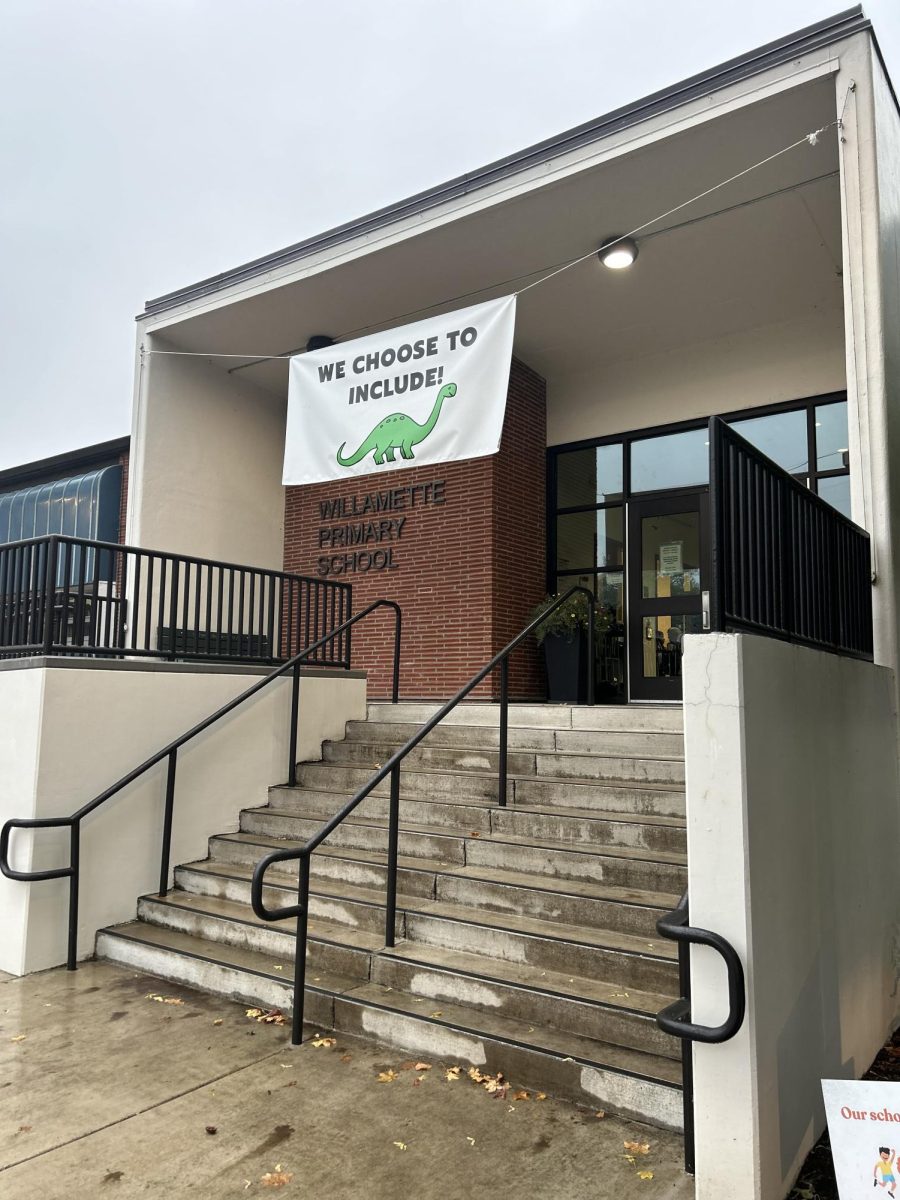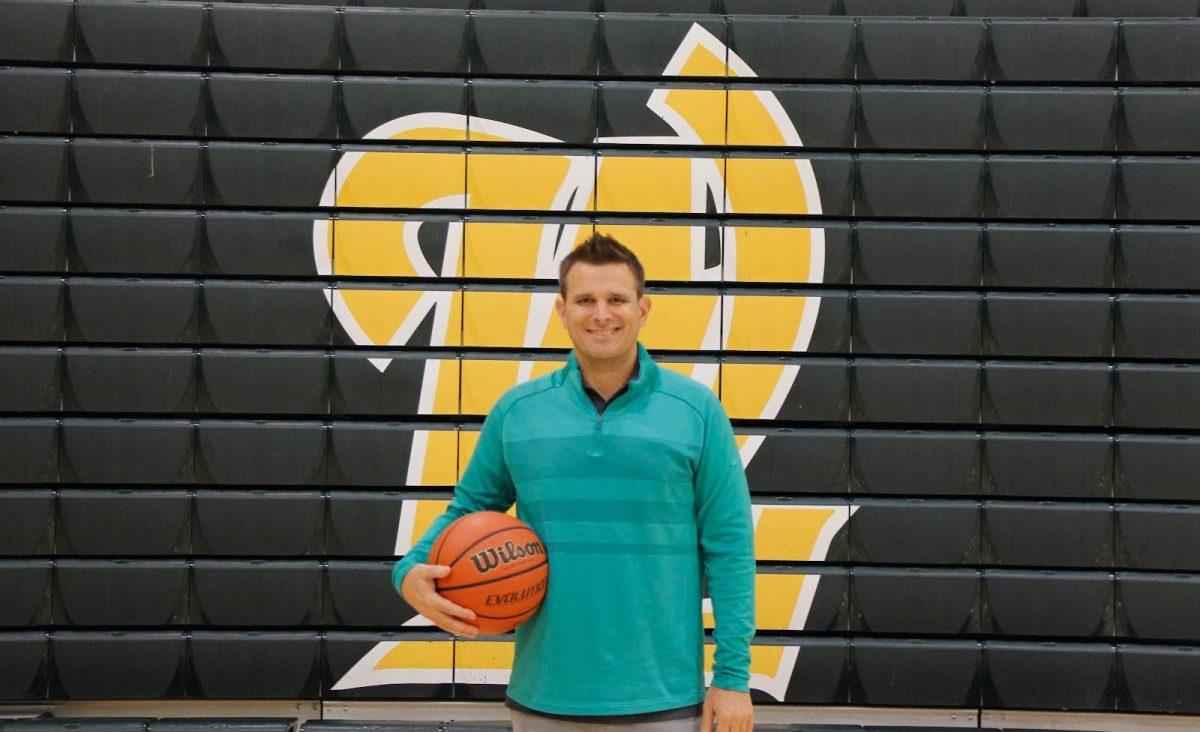Plan 2. Expanded Options. Online classes. For most students, they will likely never utilize these options to plan out their high school career. Earlybird and summer school help students desiring to land a head start or recover credits. Other, lesser known choices can also be beneficial, especially for students with very little wiggle room in their schedule for a passion already found.
Plan 2
This is perhaps the most utilized choice. Students can plan out their schedule for the rest of high school, centered around a passion like theater or choir. It allows them to waive graduation requirements in order to take other classes. However, the reason must be justified and students submit an application that has to be approved by West Linn High School administration and the district office.
“Plan 2 is an approved plan by the state of Oregon,” Michelle Olson, guidance counselor, said. ” We are one of two districts in the state to offer it.”
According to Olson, the plan is used most frequently with students involved in the performing arts. Reed Sturtevant, senior, is heavily involved in acting and choir and took advantage of Plan 2 beginning after his freshman year. After taking Wellness 9, he decided that was enough. Plan 2 students are able to waive a required class, generally a health or physical education course, in order to take year long electives or other classes relating to their area of passion, along with more challenging courses in other areas.
“It opens the doors for them to expand academically, and also in the area of their passion,” Olson said.
She reiterated that the reason must be justified to waive required courses, and that there are risks. Colleges look for required classes, and if too many are waived, it may reflect poorly upon the applicant. Once a student enters Plan 2, they must take the classes they scheduled. For this reason, Olson discourages freshmen or sophomores from choosing the plan. Sturtevant, however, found it beneficial.
“Once I had made my Plan 2, the school had to make it possible for me to take the classes (that he forecasted for in previous years),” he said.
As a dedicated performer, Sturtevant was able to take high level performance arts class utilizing the plan. Over the past four years, he has taken Symphonic Choir, Independent Study Play Writing and Independent Study Acting and Directing Seminar in spots where he would have had to take required classes.
“I really got to shape my high school education,” he said.
The option did not hurt Sturtevant’s standing with colleges. In December, he found out he was accepted to Dartmouth College, which he plans to attend next fall. He found out about Plan 2 through his sister, and is now a big proponent of it.
“There are a lot of people who could totally use Plan 2 and get more out of the high school experience,” Sturtevant said.
Expanded Options Program
In 2005, the Oregon State Board of Education approved State Bill 300 Expanded Options Program. According to the OSBE, the bill “Provides eligible high school students early entry into post-secondary education.” Every school district must notify all high school students and their family about this option by Feb 1 of each year. Districts must also provide information on available transportation services and financial arrangements among other things.
Students must be a junior or senior, at least 16 years old, and have developed an educational learning plan. These plans focus around a desired profession. If they are eligible, they can enroll in any community college and take courses involving their chosen career path. SB 300 mandates these courses, if not offered by the high school, and the supplies needed are free for the student.
“It opens doors for more classes we don’t have,” Olson said.
Online Classes
Online classes are a third option for students. Originally for those in need of credit recovery, it has grown into an option for those who want to pick up a credit without taking up any of their school schedule. Offered in a variety of subjects, courses are generally a year long and run through Brigham Young University. The college offers a multitude of classes in 28 subjects, ranging from accounting to art.
However, there are negatives. Students must be self-motivated to finish courses because the counselors will not be guiding them through the process, according to Olson. If they do not finish within the year, they do not receive credit. Additionally, athletes wishing to move onto college athletics may have troubles with online classes. The NCAA Clearing House, responsible for declaring if athletes are eligible, will not accept credits from BYU online.
For any of these scheduling options, Olson recommends students speak individually with their counselor. Each has positives and negatives, each can help or hurt a student. Only a one-on-one conversation can determine what is best for a specific student, according to Olson. As the school travels into the future, it seems possible that an influx in student options will occur. She believes that this change will be helpful for the increased gain of students.
“I have seen our district grow in options which I think is good because students go beyond six periods a day,” Olson said.






























































![At the bottom of the third inning, the Lions are still scoreless. Rowe stands at home plate, preparing to bat, while Vandenbrink stands off to the side as the next batter up. Despite having the bases loaded, the team was unable to score any runs. “It’s just the beginning of the season. We’re just going to be playing out best by June, [and] that’s where champions are,” Rowe said.](https://wlhsnow.com/wp-content/uploads/2024/03/IMG_3077-1200x900.jpg)







































![All smiles. The group poses for a photo with last year’s book, “This is Our House,” along with their award for third Best in Show. Meikle, who was an Editor-in-Chief for the yearbook last year as well, holds both and stands at the center of the group. “That was an amazing feeling, going and grabbing the third place award,” Meikle said. “All of it paid off. I cried so much over that book, being able to receive [the award] was one of the highlights of my high school career, it was like the coolest thing ever.”](https://wlhsnow.com/wp-content/uploads/2024/11/8bookpose_philly-1200x800.jpg)












